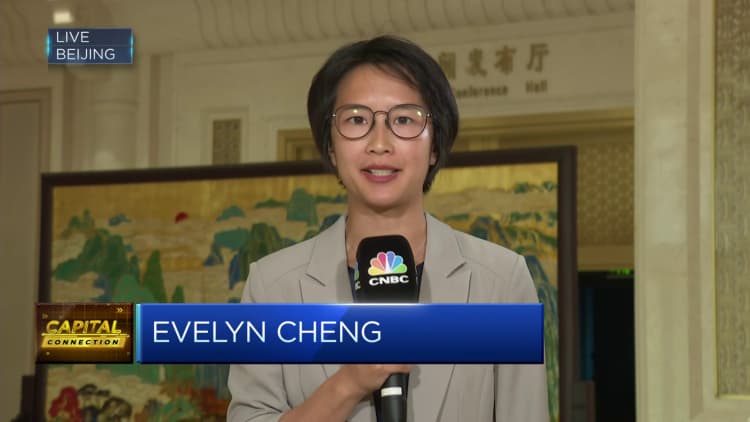Aerial image reveals the traffic circulation on a viaduct in Nanjing, East China’s Jiangsu Province, June 16, 2023. (Picture by Costfoto/NurPhoto by means of Getty Images)
Nurphoto|Nurphoto|Getty Images
Goldman Sachs ended up being the current Wall Street bank to downgrade its development projection for China, as the world’s second-largest economy stutters and loses momentum after its coronavirus resuming.
The financial investment bank cut its full-year gdp projection for 2023 from 6% to 5.4%, keeping in mind more turbulence ahead for the economy. The healing from its strict Covid-19 lockdown procedures continue to dissatisfy through soft financial information, in addition to installing pressure on its home sector.
While the company sees more stimulus to come, it keeps in mind that the procedures will not suffice to conquer the higher issues that it deals with: deteriorated belief.
” With continued obstacles from the home market, prevalent pessimism amongst customers and personal business owners, and just moderate policy relieving to partly balance out the strong development headwinds, we discount our 2023 genuine GDP projection,” economic experts led by Chief China Economic expert Hui Shan stated in research study note Sunday.
The current modification from Goldman Sachs follows the similarity UBS, Bank of America and JPMorgan who have all reduced their China full-year GDP price quotes.
Goldman Sachs’ economic experts included that there are a multitude of macroeconomic problems dealing with the country.
” With the resuming increase rapidly fading, medium-term obstacles such as demographics, the multi-year home decline, city government implicit financial obligation issues, and geopolitical stress might begin to end up being more vital in China’s development outlook,” they stated.
It likewise sees more weak point in the Chinese yuan versus the U.S. dollar due to rate differentials with the Individuals’s Bank of China anticipated to reduce its financial policy even more while the Federal Reserve is meaning more rate walkings to come.

UBS likewise sees ongoing weak point in China’s economy ahead, especially concentrating on the 2nd quarter of the year.
” Q2 [second quarter] consecutive development might slow to just 1-2% quarter-on-quarter saar [seasonally adjusted annual rate], weaker than our earlier expectation of 4.5%,” UBS Financial investment Bank’s Chief China economic expert Wang Tao stated in a Friday note.
Wang kept in mind that unpredictability in China’s home sector stays a main threat to its projection and might bring its development outlook even lower.
” Threats to our projection is a little prejudiced towards the drawback, generally from unpredictabilities in home market and course of home policy assistance ahead, in addition to weaker external need,” she stated.
